Oleros was a city in ancient Crete, located in the Meseleroi Valley near Ierapytna. It was inhabited from the Early Iron Age (Geometric period) until the Roman period. The city was known for its production of olive oil and its participation in the wider Cretan political landscape (Haggis et al. 2004, Vasilakis 2019).
History
Early Iron Age (Geometric Period): Oleros was founded in the Early Iron Age, during the Geometric period (ca. 900-700 BC). This period saw the emergence of the polis, or city-state, as the primary political unit in Greece. Oleros was one of several poleis that developed in Crete during this time.
Archaic Period (ca. 700-500 BC): During the Archaic period, Oleros continued to grow and develop. The city was involved in the wider Cretan political landscape, and it is mentioned in inscriptions from other Cretan cities (Haggis et al. 2004).
Classical Period (ca. 500-323 BC): The Classical period was a time of great cultural and intellectual flourishing in Greece. Oleros was no exception, and the city produced a number of notable figures, including the philosopher Diogenes of Oinoanda (Vasilakis 2019).
Hellenistic Period (ca. 323-67 BC): The Hellenistic period saw the rise of new kingdoms and empires in the Eastern Mediterranean. Crete was conquered by the Ptolemaic Kingdom of Egypt in the 3rd century BC. Oleros remained an important city in Crete during this time (Karambinis 2022).
Roman Period (67 BC-330 AD): Crete was conquered by the Romans in 67 BC. Oleros continued to be inhabited during the Roman period, but it declined in importance. The city was eventually abandoned in the 4th century AD (Vasilakis 2019).
Location and Archaeological Remains
The ancient city of Oleros was located in the Meseleroi Valley, near the modern town of Ierapetra. The site of the city has not been extensively excavated, but there are a number of visible remains, including the foundations of houses, a temple, and a theater (Vasilakis 2019).
Economy
The economy of Oleros was based on agriculture, particularly the production of olive oil. The city also had a port, which would have facilitated trade with other parts of Crete and the Mediterranean (Vasilakis 2019).
Culture
Oleros was a Greek city, and its culture was similar to that of other Greek poleis. The city had a number of temples, including one dedicated to Athena Oleria. Oleros also had a theater, which would have been used for performances of plays and other events (Vasilakis 2019).
Political Organization
Oleros was a polis, or city-state. The city was governed by an assembly of citizens. Oleros also had a number of magistrates, who were responsible for carrying out the day-to-day administration of the city (Stampolidis et al. 2019).
Decline and Abandonment
Oleros declined in importance during the Roman period. The city was eventually abandoned in the 4th century AD. The reasons for the city’s decline are not fully understood, but they may have included economic factors, such as the decline of the olive oil trade (Vasilakis 2019).
Archaeological Site: Key Points
- Construction Period: Early Iron Age (Geometric period) to Roman period
- Location: Meseleroi Valley, near Ierapetra, Crete
- Historical Significance: An important city in ancient Crete, known for its production of olive oil and its participation in the wider Cretan political landscape.
- Current Status: Partially excavated; some visible remains, including the foundations of houses, a temple, and a theater.
References:
- Haggis, D.C., M.S. Mook, C.M. Scarry, L.M. Snyder, and W.C. West III. 2004. Excavations at Azoria, 2002. Hesperia 73: 339–400.
- Karambinis, M. 2022. The cities of Crete under Roman rule (1st–3rd centuries AD). Journal of Greek Archaeology 7: 233–268.
- Stampolidis, N., D.I. Tsangari, and M. Giannopoulou (eds). 2019. Cretan Cities: The Testimony of Coins. Athens: Alpha Bank.
- Vasilakis, A. 2019. The 147 Cities of Ancient Crete. Herakleion: Municipality of Ierapetra.

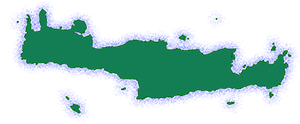











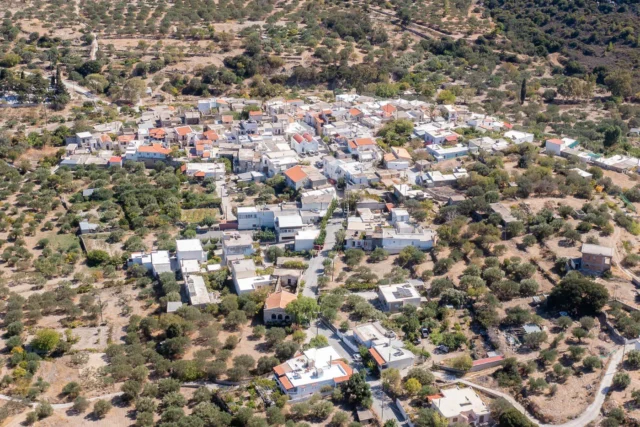
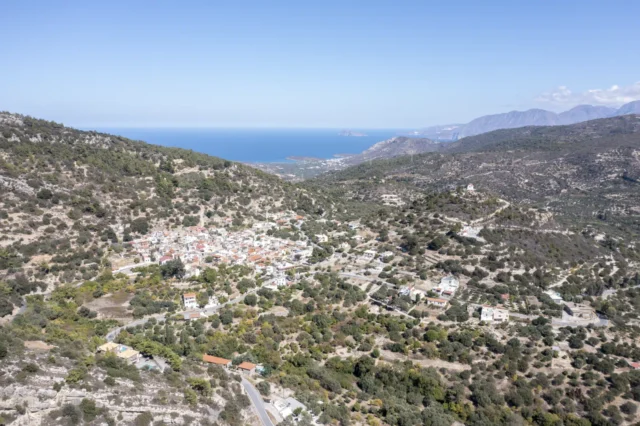

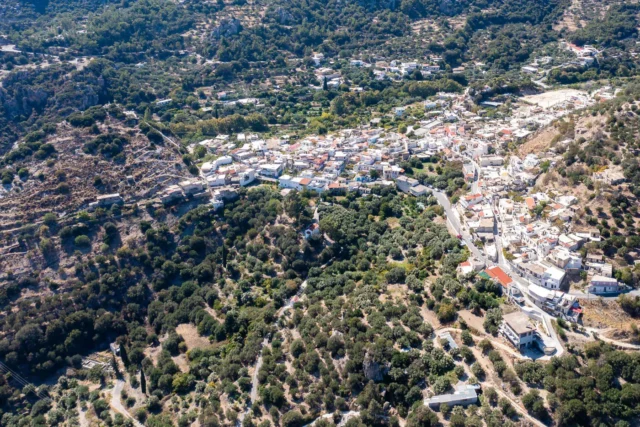
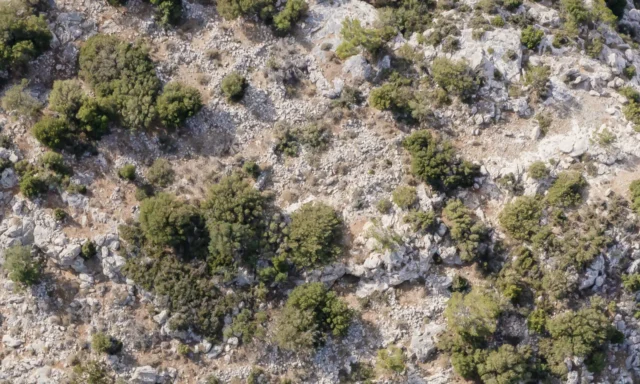



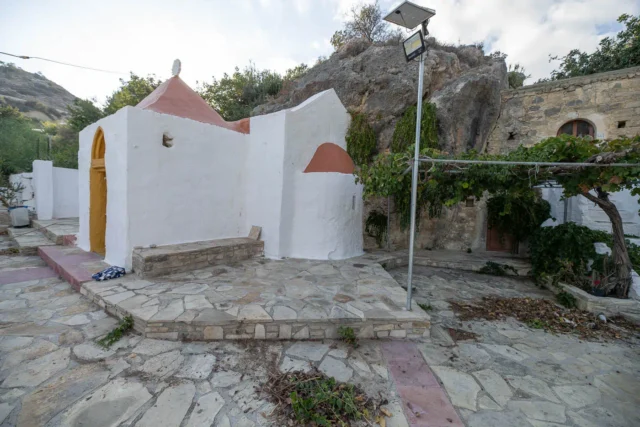

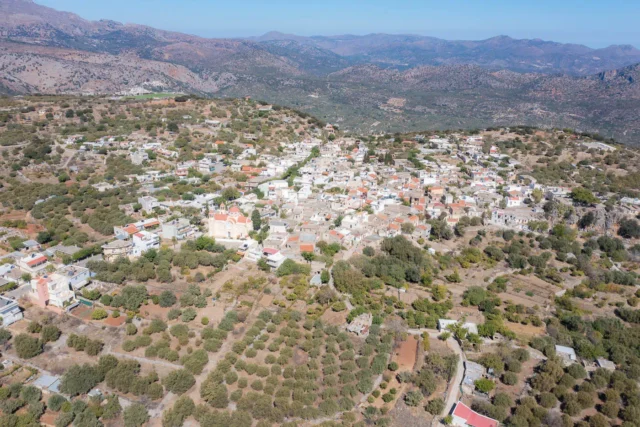

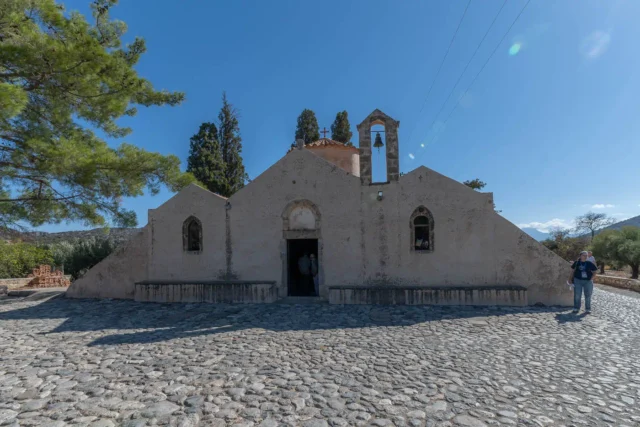

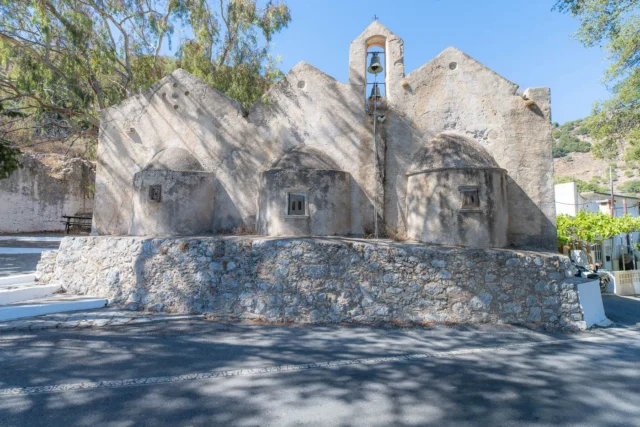
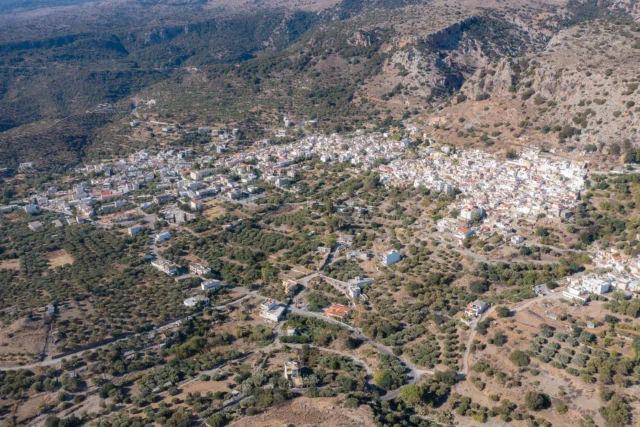
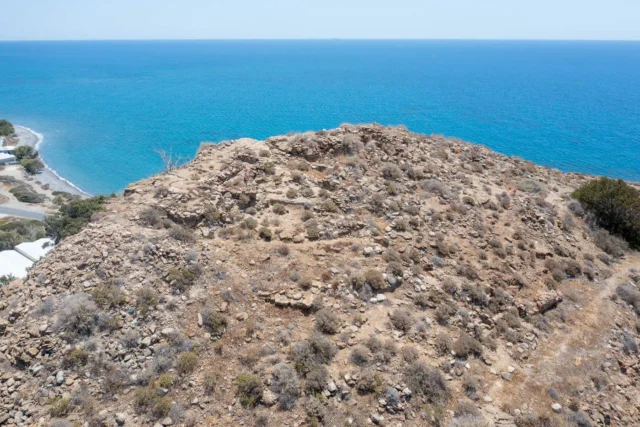
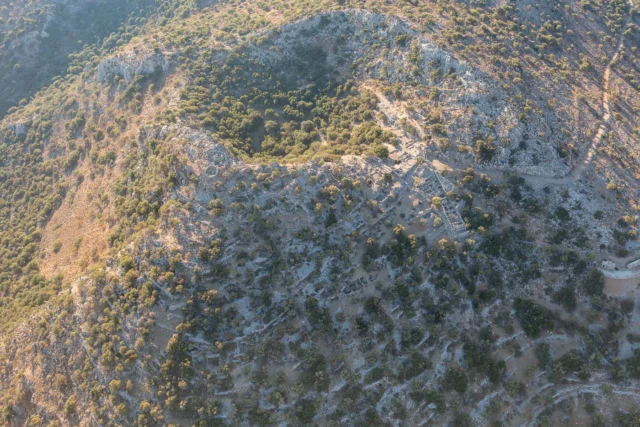
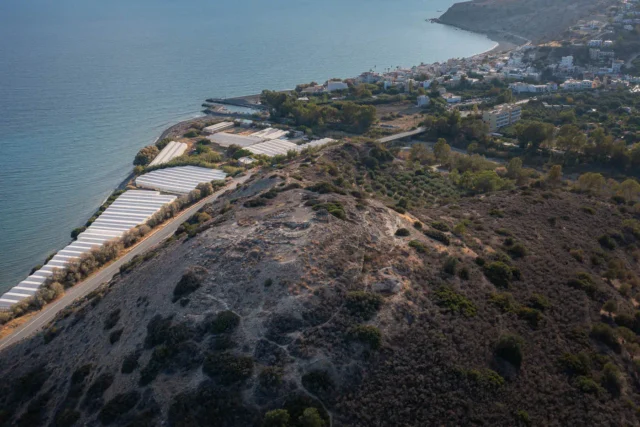

There are no comments yet.